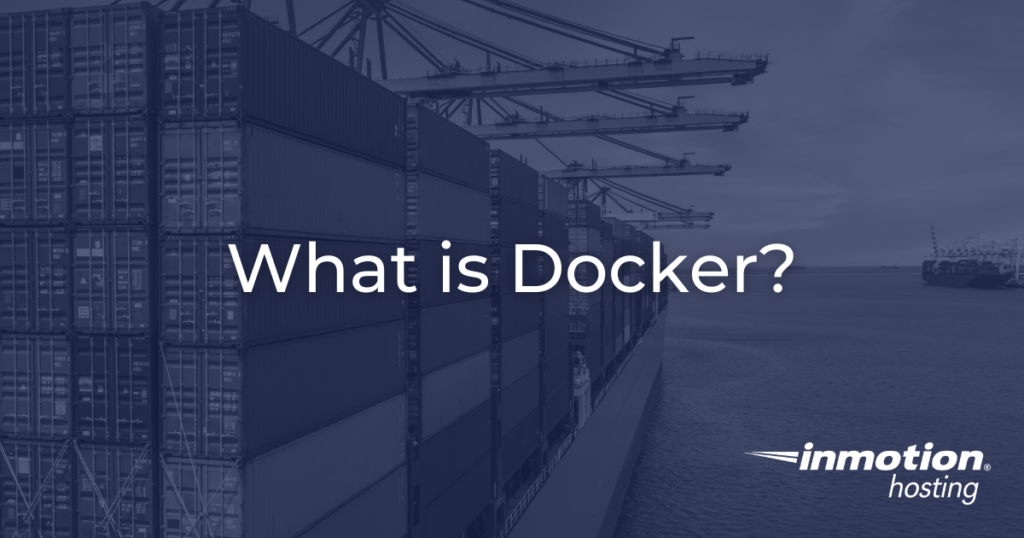
Docker is a platform that allows you to develop, deploy, and run applications in containers. Containers are lightweight, portable, and self-sufficient units that encapsulate all the necessary components, such as code, runtime, system tools, libraries, and settings, needed to run an application. Docker provides tools and a platform to create, manage, and run these containers efficiently.
Docker is now available to install on all VPS and Dedicated Servers from InMotion Hosting, including Platform i, Unmanaged Cloud VPS, Control Web Panel, and cPanel-Managed VPS. Only experienced users should use Docker. Technical Support cannot provide assistance with Docker issues, but if you need help, you can contact our Managed Hosting Professional Services team.
How does Docker differ from a Virtual Machine (VM)?
While both Docker containers and virtual machines serve the purpose of isolating applications, they operate differently:
- Resource Utilization: Virtual machines require a hypervisor to emulate hardware, which consumes more resources (CPU, memory, disk space) compared to containers. Docker containers share the host system’s kernel and do not require a separate operating system instance for each container, resulting in more efficient resource utilization.
- Isolation: Virtual machines provide full isolation, with each VM having its own operating system, which makes them heavier and slower to start compared to containers. Docker containers share the host operating system’s kernel but are isolated from each other using kernel namespaces and control groups (cgroups), providing lightweight isolation.
- Portability and Scalability: Docker containers are more portable and easier to move across different environments because they encapsulate all dependencies within the container image. Virtual machines, on the other hand, require more effort to move between different hypervisors or cloud platforms due to differences in virtualization formats.
- Speed: Docker containers typically start much faster than virtual machines since they don’t need to boot an entire operating system. This makes Docker ideal for applications requiring rapid scaling or frequent deployment.
Installing Docker on your VPS or Dedicated Server
For the latest instructions to install Docker on your VPS or Dedicated Server, check the official documentation: Installing Docker on CentOS/AlmaLinux and Installing Docker on Ubuntu.
Docker FAQ
Can Non-Root Users be Allowed to Use Docker?
Yes! While Docker typically requires root privileges, it’s possible to configure Docker to be used by non-root users. This can be achieved by adding the user to the docker group, which grants them the ability to run Docker commands without root access. However, it’s important to be aware of the security implications, as users in the docker group can gain root access to the host system through the Docker daemon.
To allow a user to run Docker, execute the following command, substituting the actual username for USER:
usermod -aG docker USERCan We Limit a Container’s Resources?
Yes! Docker provides mechanisms to limit resources for a container, such as CPU, memory, and I/O. This is crucial for ensuring that no single container can monopolize system resources, allowing for efficient resource utilization among all running containers. By using Docker’s resource management features, you can maintain system stability and optimize performance across all containers. You can learn more about managing a container’s resources from Docker’s Documentation Portal.
What Can I Do With Docker?
The possibilities are practically endless! Check out the official Docker Image Hub to explore what the Docker community has created. Learn more about working with Docker Containers.